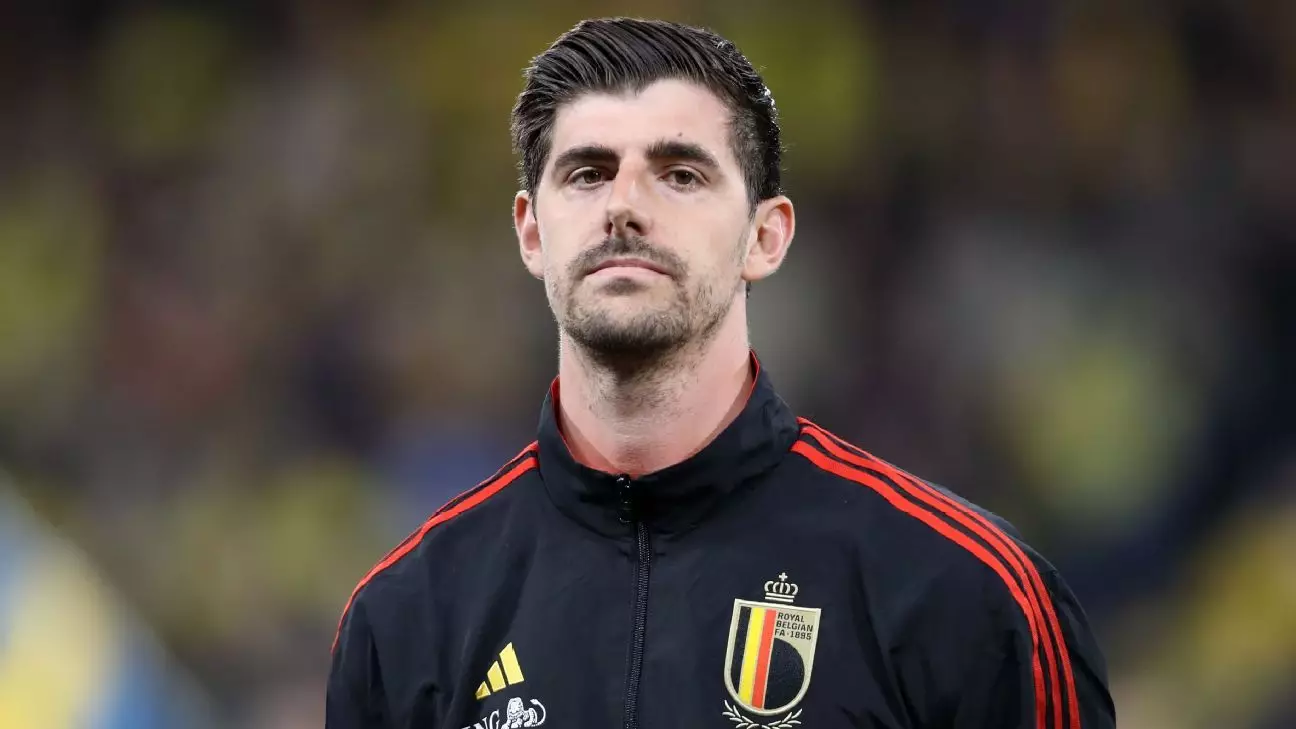The ongoing discord between Thibaut Courtois, Belgium’s standout goalkeeper, and national team coach Domenico Tedesco has cast a shadow over Belgian football. Their rift, which traces back to the summer of 2022, highlights deeper issues concerning team dynamics and leadership roles. It all began when Courtois expressed his disenchantment with Tedesco after being overlooked for the captaincy during a critical European Championship qualifier in Estonia. This incident has since spiraled into a more profound conflict, culminating in Courtois’s public declaration that he would not re-enter the squad as long as Tedesco remained at the helm.
Adding complexity to this situation is Courtois’s physical condition. After suffering a severe knee injury that sidelined him for much of the last club season, he made a resilient return with Real Madrid, even aiding them in clinching the prestigious Champions League title. However, his health issues ultimately led to his absence from the Euro 2024 tournament in Germany, raising questions about his commitment to the national side. These circumstances have turned a personal conflict into a significant dilemma for the Belgian national team, as they struggle to find a replacement for an invaluable player who boasts over a century of caps.
In light of this standoff, Peter Willems, the new chief executive officer of the Belgian Football Association, has stepped into the fray. His visit to Madrid underscores a critical initiative to broker peace between the two parties. Willems’s outreach reflects a growing recognition within Belgian football management that resolving this conflict is paramount for the team’s prospects moving forward. Despite Tedesco’s apparent openness to dialogue, as expressed in his recent statements, the way forward remains uncertain. Willems’s assertion that Tedesco is “absolutely the right man in the right place” signals an understanding of the significant challenges that lie ahead.
The situation is emblematic of broader issues facing national teams: balancing the interests of star players with coaching philosophies. Keeping Courtois in the fold is crucial not only for maintaining competitive integrity but also for fostering team unity. If the impasse continues, it may signal long-term implications for Belgium’s international ambitions. The forthcoming Nations League clash against Italy serves as a vital backdrop against which this turmoil plays out, and how the team fares may influence future decisions regarding both Tedesco’s tenure and Courtois’s involvement.
As Belgium navigates this precarious intersection of talent, management, and personal grievances, the stakes are undeniably high. The resolution of the Courtois-Tedesco conflict may serve as a litmus test for the effectiveness of current leadership approaches within the Belgian football hierarchy. Moving forward, both Tedesco and Courtois must weigh their respective roles and contributions carefully, as the future of Belgian football may depend on their ability to find common ground.

